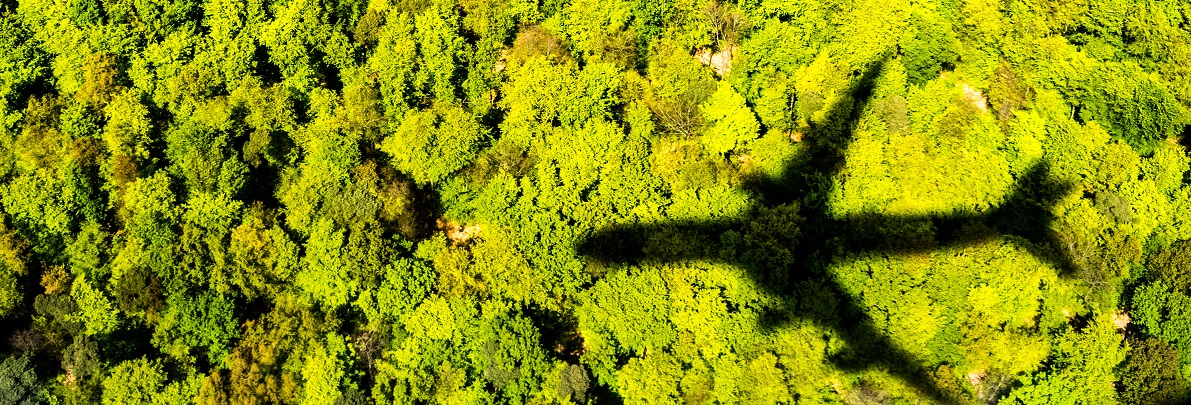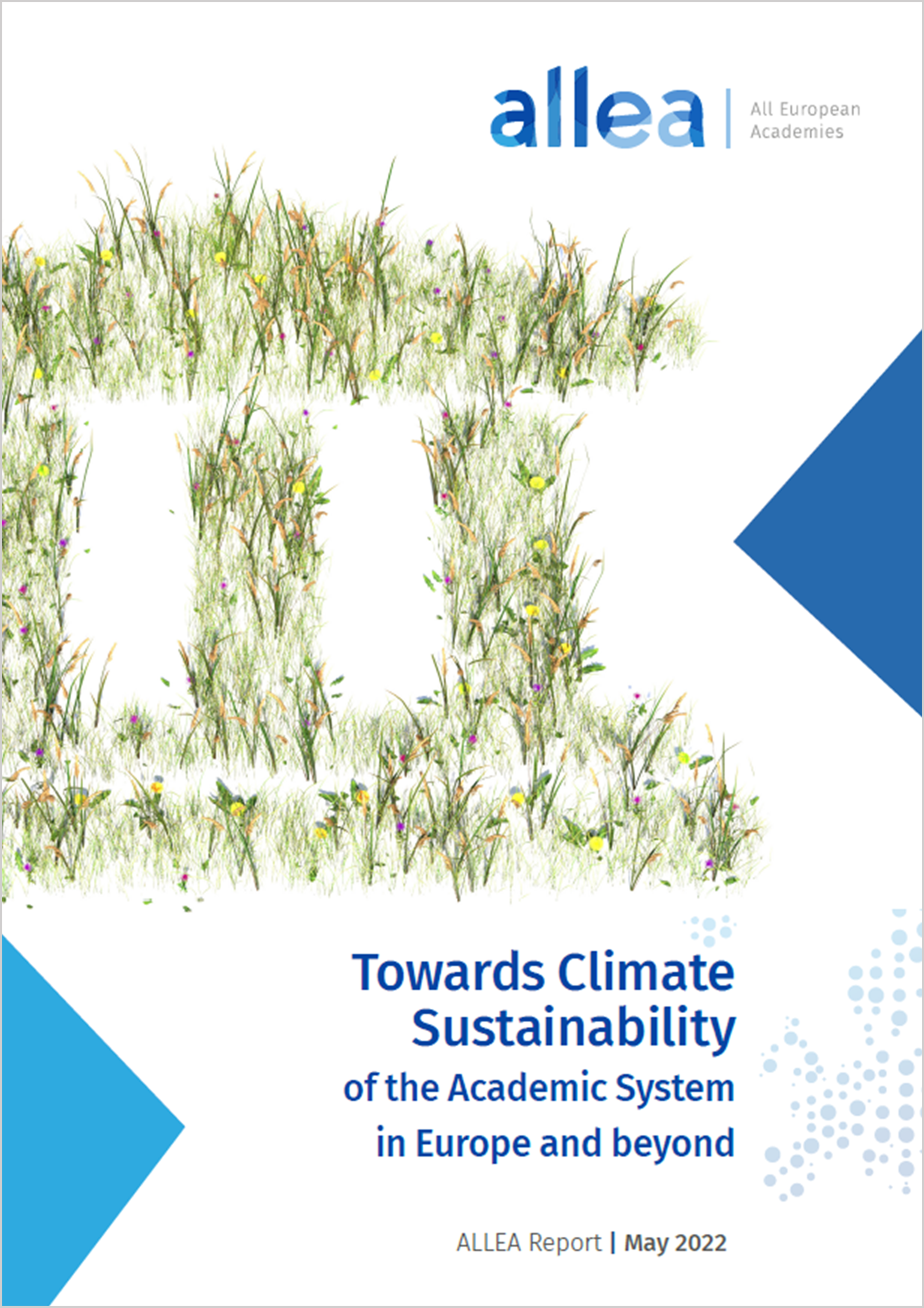Climate Sustainability in the Academic System
The sixth assessment report of the IPCC highlights the urgency of the climate crisis. To meet the goals of the Paris agreement, swift and transformative change across all sectors of industry, policy and society are now required, including academia. To this end, a special focus needs to be placed on travel practices and physical versus virtual mobility.
The disruption of the COVID-19 pandemic has encouraged a re-thinking of working modes and practices leaving no domain untouched, including academia. In this transformation, researchers are investigating the role the academic system can play in mitigating greenhouse emissions and the potential for a new framework to conduct more climate-friendly research. How can we achieve this without compromising excellence and international collaboration? Are there co-benefits of digital exchanges such as an increased international participation?
In the past decades, attending international scientific conferences and on-site international collaboration have been major drivers of research. Now, reducing the carbon footprint through digital exchanges and finding alternatives to emission-intensive transportation could help make academia more sustainable. ALLEA is working with its Member Academies and international experts to examine the options for a new model of climate sustainability for the academic system.
Report: Towards Climate Sustainability of the Academic System in Europe and beyond
The report, released in May 2022 by the ALLEA Working Group Climate Sustainability in the Academic System, examines academia’s impact on the climate and provides recommendations on how academia can reach its sustainability goals.
It evaluates the operations of key stakeholders shaping the academic system, including universities, research institutes, students, individual academics, funding organisations, conference organisers, ranking agencies, policymakers, and academies, learned societies and professional bodies.
Through illustrations of best practices and concrete recommendations, the report offers actionable strategies to significantly reduce the annual greenhouse gas emissions generated by the academic sector. It prioritises deliberation, balance, and consideration of all relevant perspectives to enable an academic environment that promotes environmental sustainability without compromising research excellence or hindering international collaboration.
A preview of the report was presented during ALLEA’s virtual event titled ‘Climate Sustainability in the Academic System – the Why & the How’. This online panel provided a platform for discussions surrounding academia’s environmental footprint and potential pathways towards more sustainable practices.
A summary of the event is available here.
ALLEA Working Group Climate Sustainability in the Academic System
Led by Die Junge Akademie (German Young Academy), the group reviewed the available knowledge, experiences, and data regarding academia’s climate impact, and assessed relevant examples of best practices from similar contexts. Comprising members from diverse disciplines, countries, and generations, the working group formulated a proposal, outlined in the report Towards Climate Sustainability of the Academic System in Europe and beyond, for the sustainable transformation of academia.
Members of the working group
- Astrid Eichhorn – Die Junge Akademie, Germany (Chair)
- Carlo Barbante – National Academy of the Lincei, Italy
- Magnus Breitholtz – Stockholm University, Sweden
- Valerie Domcke – Die Junge Akademie, Germany
- Antonin Fejfar – Czech Academy of Sciences, Czech Republic
- Raphael Heffron – Young Academy of Scotland/Royal Society of Edinburgh, United Kingdom
- Jan Hladky – Czech Academy of Sciences, Czech Republic
- Debbie Hopkins – University of Oxford, United Kingdom
- Agnes Kreil – ETH Zurich, Switzerland
- Ambreena Manji – Learned Society of Wales, United Kingdom
- Mykolas Simas Poškus – Mykolas Romeris University, Lithuania
- Jana Prodanova – Macedonian Academy of Sciences and Arts, Macedonia
- Sverker Sörlin – KTH Stockholm, Sweden
- Diarmuid Torney – Royal Irish Academy, Ireland
- Bart Vermang – Young Academy of Belgium/Royal Flemish Academy of Belgium for Science and the Arts, Belgium
ALLEA Net Zero Steering Group
At the ALLEA General Assembly 2023, member academies unanimously endorsed a motion put forward by the British Academy, affirming their dedication to acknowledging the importance of combatting climate change and transitioning to net zero emissions. They committed to provide updates on their plans for reaching a net zero target and to establish a steering group to oversee the collection of data. The group will provide recommendations at the ALLEA General Assembly 2024 on how ALLEA Member Academies can exchange knowledge and best practices from their policies and ongoing initiatives and progress towards net zero emissions.
Members of the steering group
- Hugo Clarke – British Academy, United Kingdom (Co-chair)
- Luke Drury – Royal Irish Academy, Ireland (Co-chair)
- Astrid Eichhorn, Die Junge Akademie, Germany
- Soteris Kalogirou – Cyprus Academy of Sciences, Letters and Arts, Cyprus
- Melle Jan Kromhout, Royal Netherlands Academy of Arts and Sciences, Netherlands
- Sile Lane – Royal Irish Academy, Ireland
- Margarita Popova – Bulgarian Academy of Sciences, Bulgaria
- Antonello Provenzale – Academy of Sciences of Torino, Italy
- George Sakellaris – Czech Academy of Sciences, Czech Republic
- Natalia Sobczak – Polish Academy of Sciences, Poland
- Christos Zerefos – Academy of Athens, Greece
ALLEA Contact
Böbe Barsi
Corporate Communications Officer
communications@allea.org



